Design Thinking in STEM
Encouraging innovation and creative thinking
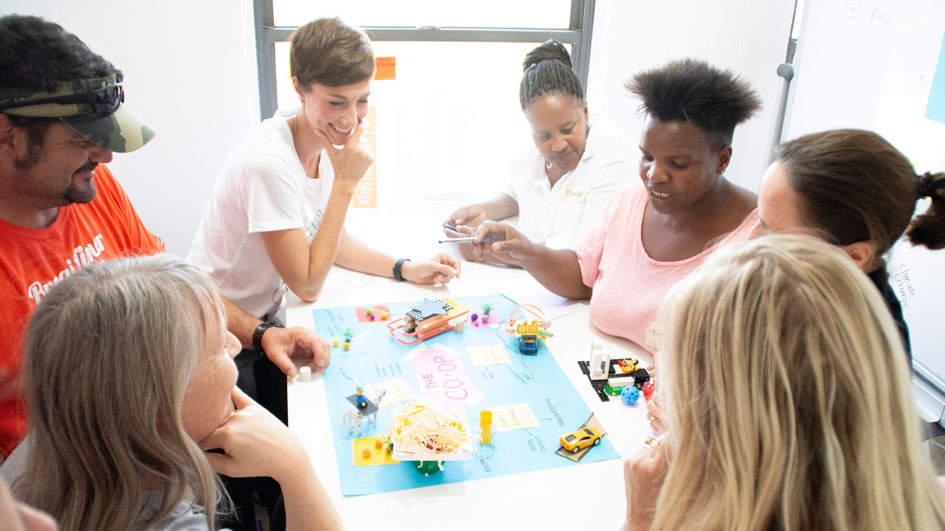
Preparing young people for a future of complex challenges such as globalization, digitalization, or climate change requires high-quality STEM education. Additionally, skills such as creative problem solving, the ability to innovate, and critical thinking are increasingly important for openly embracing change and conscientiously shaping the future. Our project “Design Thinking in STEM” is aimed at developing approaches for teaching these abilities in science and technology lessons.
Project
Innovative methods and creative processes
The design thinking method encourages students to address challenges with a sense of empathy, viewing a problem through the eyes of someone actually confronting it. Through interdisciplinary teamwork, ideas and approaches are turned into physical prototypes early in the process to be tested and evaluated. Implementing the design thinking method in STEM lessons, we are collaborating with The Index Projectand in some countries such as Germany with the HPI D-School. With years of experience working in schools, the Danish nonprofit The Index Project has developed several step-by-step tools and techniques for the classroom that take teachers through the various phases of design thinking.
Global challenges with local context
In addition to integrating a creative approach to learning, Design Thinking in STEM introduces the UN Sustainable Development Goals to STEM lessons. The 17 goals established by the United Nations for sustainable development provide a thematic structure for interdisciplinary STEM lessons. They include the economic, social, and environmental challenges of the 21st century, which are growing in their local impact alongside their global relevance. Complex STEM topics can be explained through specific problems, such as clean drinking water or sustainable power generation, while design thinking makes these problems more approachable.
Deployment
Workshops on three continents
Since the project began in 2019, Design Thinking in STEM has been implemented in South Africa, Chile, Mexico, and Peru. In multi-day workshops, teachers are introduced to the basic principles of design thinking before co-creating ways for the method to be adapted for STEM lessons. In November 2021, a project has been launched to adapt the approach to the German education system. Design Thinking in STEM will eventually be expanded to further countries in Africa and Latin America.
Design Thinking in Germany
In cooperation with the HPI School of Design Thinking in Potsdam, we are currently working on an adaptation of the Design Thinking in MINT project to the German educational system. Since November 2021, students have been developing a training concept for educators as part of a university project that incorporates the requirements of the local school system and is set to be launched in 2022.
The concept involves a hybrid format for STEM teachers that combines virtual sessions with collaborative in-person exercises. The United Nations‘ Sustainable Development Goals (SDGs) provide the thematic framework.
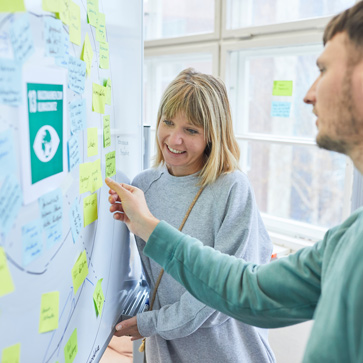
South Africa: Greater impact through cooperation with local d-school
By now, teachers at schools in Cape Town, Johannesburg, and Durban are working with the Design Thinking method to teach lessons on subjects including the Sustainable Development Goals (SDGs). Together with their teachers, students create local solutions for urgent problems such as gender equality, sustainable consumption, and climate protection.
In 2021, the HPI School of Design Thinking at the University of Cape Town (d-school) – Africa’s first Design Thinking school – became a cooperation partner for the further implementation of the project. Together, we aim to support more schools and teachers in South Africa with a design-based, holistic approach to nurturing the creative potential of learners and preparing them for the challenges of the real world. Further partners are the Western Cape Education Department (WCED) and the Schools Development Unit of the University of Cape Town (UCT SDU).
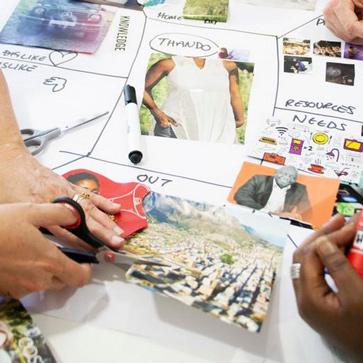
Design Thinking in STEM in Chile, Peru, and Mexico
In Chile, the Design Thinking in STEM activities are coordinated by our long-time partners at Pontificia Universidad Católica de Chile (PUC) in Villarrica and PUC in Valparaíso. STEM educators from these networks were first introduced to the method in on-site and online workshops. In 2021, they were then trained to be multipliers themselves in a train-the-trainer programme in order to pass on their knowledge to their peers.
In addition, we are collaborating with two partner education institutions, INNOVEC and Instituto Apoyo, to expand the project to Mexico and Peru with online workshops for teachers.
To mark the beginning of the workshops in Peru and Mexico, Mariano Alesandro, Head of Future Thinking & Special Projects at The Index Project, and Christine Niewöhner, project manager at Siemens Stiftung, introduced Design Thinking in STEM during an online discussion, “Promover la creatividad y la innovacion en clase.”
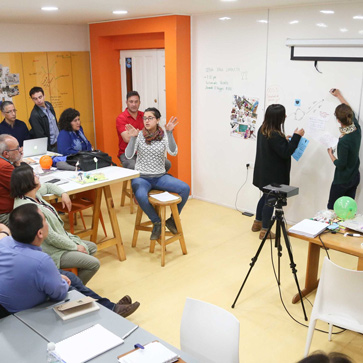
Reports
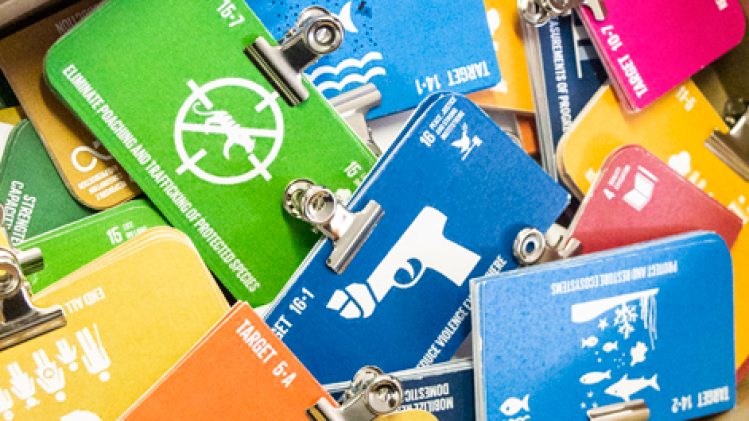
„I took everything out of the classroom and set it up for a new beginning.”
How does Design Thinking change STEM education? – A report from three South African schools
Contact
Would you like to work with us? Or do you have any questions?
Project manager Design Thinking in STEM
Christine Niewöhner
christine.niewoehner@siemens-stiftung.org
+49 89 540487 119
Would you like to learn more?
Websites
Social Media
Downloads
Learn more about the topics

«An ode to creativity»
In a changing world, why is creativity needed more than ever? Project manager Christine Niewöhner explains in a blog post for The Index Project.
Outcomes and evaluation
With Design Thinking in STEM, we aim to encourage innovation and creativity in young people. We want to support them in creating sustainable solutions for complex challenges so they can shape their own future. The Schools Development Unit at the University of Cape Town is monitoring the project, evaluating the use of the new methods in STEM lessons, and assessing student development. In Chile, the Pontificia Universidad Católica de Chile evaluates our work at the Villarrica and Valparaíso sites – as well as the Instituto Apoyo in Peru.


